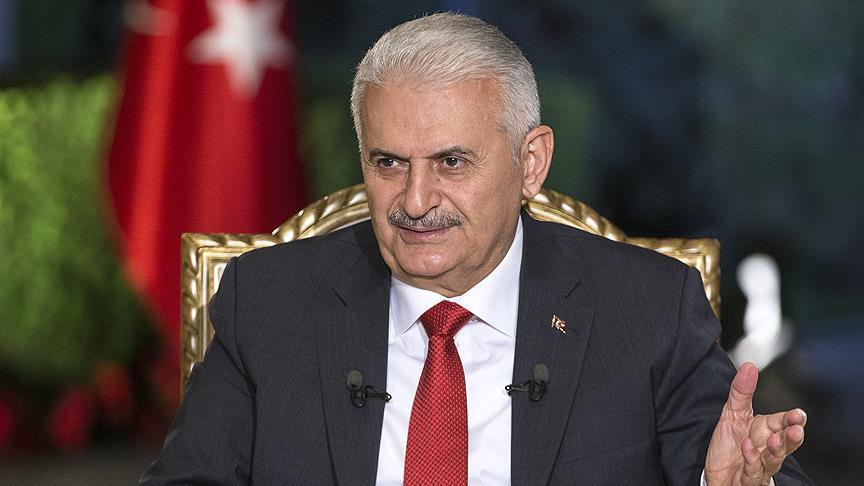Turkish forces 'deployed 30km inside' of northern Iraq
Turkish premier talks to news channel NTV

Ankara
By Nilay Kar Onum
ISTANBUL
Turkish armed forces have been stationed 30 kilometers inside of northern Iraq as part of its anti-terror operation in the region, Prime Minister Binali Yildirim said on Friday.

Speaking during a special live broadcast on Turkish news channel NTV, Yildirim said: “We have been deployed in a 300-kilometer area, in 30 kilometers deep in northern Iraq. It’s beyond may be Qandil, Mahmur or Sinjar.”
Airstrikes on PKK targets in northern Iraq, where the terror group has its main base in the Mt. Qandil region, near the Iranian border, have been carried out regularly since July 2015, when the PKK resumed its armed campaign.
In response to a question if there will be a cooperation with Iran and Iraq over Qandil operation, he said: “PKK harms everyone. I don’t think we will have any problem [on this issue].”
Earlier, AK Party spokesman Mahir Unal, who also spoke during the live broadcast on NTV channel, said Turkey has been conducting cross-border operations in order to provide internal security.
“Turkey naturally is entering inside from Al-Bab to Afrin and 30 km inside of northern Iraq in order to preserve its border security and provide internal security. Why is it doing this? It is doing for border security.”
“These operations have started in March. So far, Turkey entered 30 km inside of northern Iraq and 24 km distance has remained in Qandil and many PKK camps have been destroyed.
“We are carrying out serious diplomacy with both Iran and Iraq,” he added.
Austrian move
Yildirim also slammed Austria’s decision to shut down seven mosques and expel 40 imams, terming it against international law.
“It is quite wrong. It neither suits universal legal rules nor EU values and migrants’ law.”
Earlier on Friday, Austrian Chancellor Sebastian Kurz announced that seven mosques will be shut down in the country while 40 imams will be expelled on grounds of being foreign-funded.
Speaking at a news conference with Vice Chancellor Heinz-Christian Strache and EU Affairs Minister Gernot Blumel, Kurz said the move was part of a crackdown on "political Islam".
Kurz said an investigation on several mosques and associations conducted by the Ministry of Interior and Office of Religious Affairs had been concluded and the activities of seven mosques were found to be forbidden -- one of the mosques belongs to the Turkish-Islamic Cultural Associations (ATIB).




